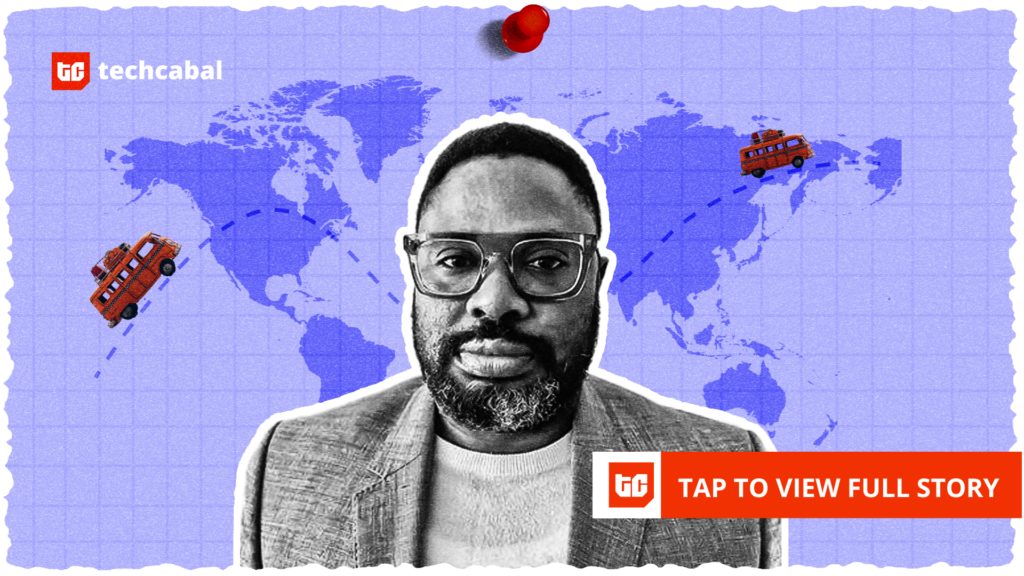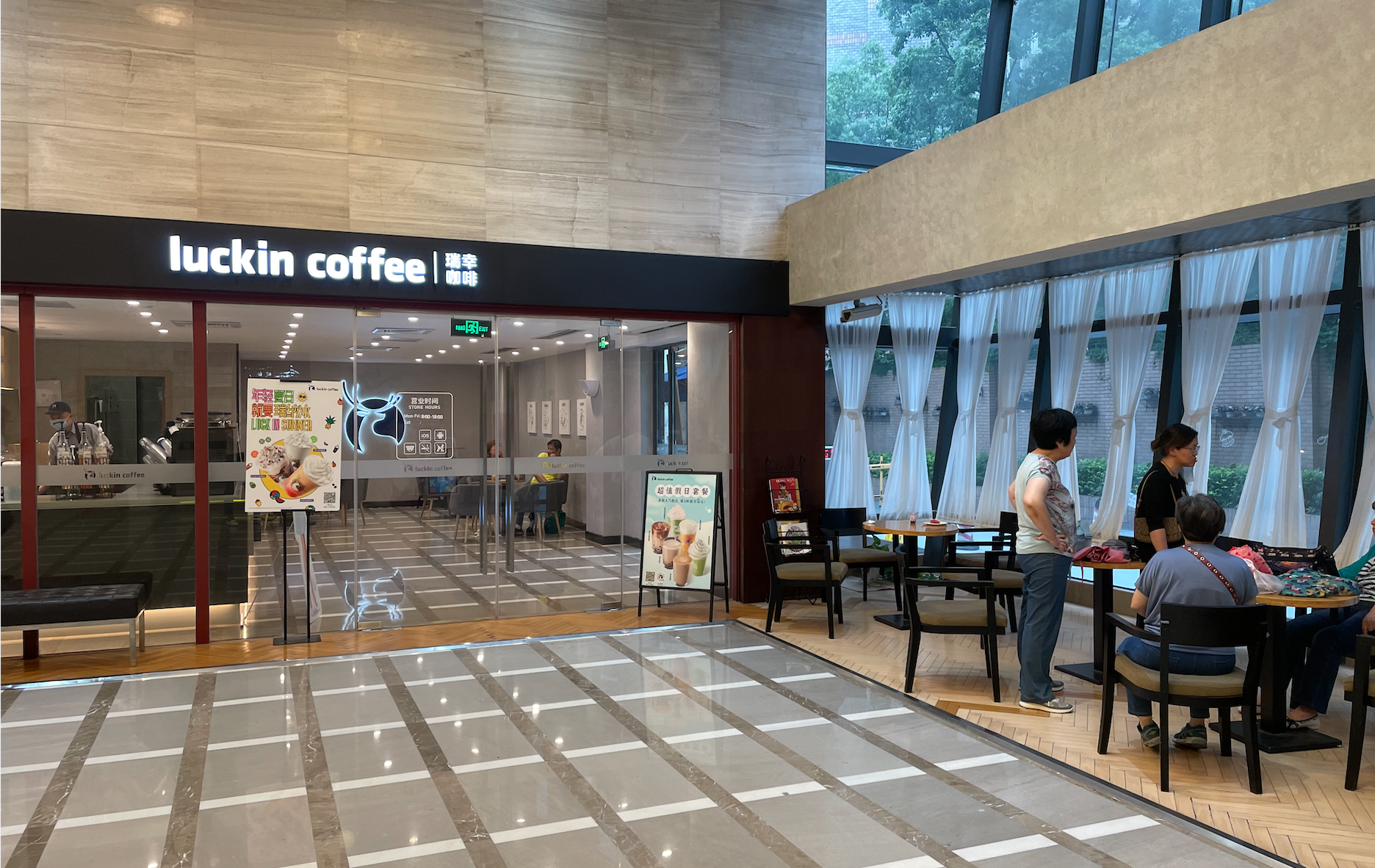In 2020, as the COVID-19 pandemic almost ground the world to a halt, Samuel Ajiboyede’s entrepreneurial journey was just getting started.
After spotting a gap in the infrastructure-heavy logistics sector, he wanted to digitise it and built Zido, a digital supply chain procurement and logistics platform. A few months after it launched, he signed a $10 million contract.
“It was almost by chance,” he recalled. “I had just reached out to someone on LinkedIn, introduced myself and what I do, and within hours we were having a meeting. He brought his director along, and from there things took off. That first contract is still running today.”
It was a contract to help a large Nigerian company move large cargo shipments from one of its branches to another within the country. Zido secured the contract, but it had to find service providers to move the goods and oversee its end-to-end delivery.
That contract launched Ajiboyede’s startup into one of Africa’s toughest sectors where many founders prefer to test the waters before scaling.
Building Zido in the digital supply chain era
From the outside, Zido looks like a logistics company: trucks, cargo, movement of goods. But Ajiboyede says it is first a technology company with various units sitting under an umbrella: logistics, artificial intelligence, fintech, and even a patented renewable solution, being kept under wraps, to “help electric vehicles increase their range.”
The logistics arm, which has become Zido’s most visible face, operates on two models. One is a joint operation in which Zido funds the operations while clients like logistics firms work under their own names. The second is a franchise model, more akin to aggregation, where truck owners sign onto Zido’s platform to service corporate clients.
This approach allows the company to serve blue-chip companies such as Unilever and Lafarge while also managing distribution and inventory for consumer goods manufacturers. In addition to moving goods, Zido also integrates procurement, warehousing, and transportation, making it a digital supply chain company rather than just another trucking business.
The economics of this sector, however, are unforgiving. Logistics in Africa is capital-intensive and risky.
Trucks are often poorly maintained, underpaid, begrudging drivers often abscond, and contracts casually broken. Many entrepreneurs who rush into the logistics business leave as quickly as they arrive, said Ajiboyede, who is now based in the UK. He learnt early on that the industry is porous and full of players willing to cut corners.
“A founder must build systems that absorb that risk rather than collapse under it,” said the founder.
He’s adopted what he calls a “zero financing” approach: instead of raising capital first, he would secure contracts and use them as leverage to access financing.
That $10 million deal in 2020 was the first test of the model. With a signed contract in hand, he approached banks and financiers who were willing to back the execution. It worked, and it has become the company’s growth playbook.
Beyond financing, his biggest lesson has been adaptability. Operating in Nigeria and the UK has taught him not to assume one model will work everywhere. Each country has its own labour laws, contract structures, and business realities.
“What works in Nigeria won’t necessarily work in the UK,” said Ajiboyede.
“I hardly borrowed money at the beginning,” he says. “The goal is to close a solid contract, then use that to raise money for execution. If people trust you enough to give you the contract, banks will give you money.”
Today, Zido has grown to manage teams across several countries, including Nigeria, the UK, and contractors in the US and China, working cross-functionally.
Yet the company prefers to localise its operations, keeping separate teams and contracts in each jurisdiction, for compliance sake. A Nigerian client of Zido cannot automatically extend that contract to the UK; it must be renegotiated afresh. This separation, while sometimes cumbersome, protects the company from legal and financial risks.
“Many people think the problem is trucks or infrastructure,” said Ajiboyede. “The real challenge is finding the missing gap in each market and designing around it.”
In Nigeria, that might be financing operators properly. In the UK, where access to trucks is easier, the gap might be efficiency or regulation. A founder must understand these nuances to survive in the capital-intensive and regulatory-heavy logistics sector.
Building location-independence as a founder
Ajiboyede moved to the UK with his family in 2023 on a Global Talent Visa. It was a personal decision rather than a business one, to find stability in another country after travelling in and out of Africa on Zido’s business for years.
Despite his relocation, Ajiboyede has remained a location-independent first employee in his company. He frequently travels between continents, overseeing operations in Nigeria, the UK, and other markets where the company has contracted work, such as the US and China.
“Stability” is an unusual word for a founder who, till this day, still works across continents. Yet Ajiboyede’s migration is a microcosm of scores of African founders that have moved to the UK on the talent visa. Specifically, about a third of all successful global talent visa applications between 2019 and 2023 have come from Nigerian founders seeking to build their businesses in an environment that offers perks.
To Ajiboyede, he finds the care the UK government takes in participating in the logistics and supply chain sector.
The Nigerian founder has also carved a space for himself in the UK’s tech ecosystem. Within two years of arriving, he was appointed to techUK’s board, one of the country’s most influential technology bodies. The organisation connects the UK’s wider tech industry with the government, providing feedback on tech policies and national strategies, Ajiboyede shared.
“Every major tech company you can think of—Microsoft and Google—they’re there [on the techUK],” he said. “And they engage the government directly. To be part of that in just three years is humbling.”
He had built his personal brand while in Nigeria, ensuring that when he moved abroad, it travelled with him. Through deliberate networking, social media presence, and sponsorship of industry events, he carved out visibility in the UK even before physically arriving. By the time he contested for a seat within TechUK, he was no stranger to its members.
He also used his platform to campaign for diversity. At the time he joined, black representation in the organisation was minimal. He advocated for more representation in UK tech, and he believes his voice made a difference.
Lessons from building in a risky sector
Building a logistics business that involves the UK doesn’t eliminate the difficulty, but it is a more supportive environment, according to Ajiboyede. In the UK, he shared, contracts are awarded on merit, with little to no emphasis on connections or ethnicity.
“Somebody awarding you a contract might not even know you personally. They simply read your history, your track record, and make a decision,” he noted. In Nigeria, by contrast, networks often weigh more heavily than merit.
That contrast has given him perspective on what is needed for Africa’s logistics sector to thrive. He argues that genuine transformation will only come when government infrastructure integrates with private enterprises.
Rails, ports, and highways cannot remain government-managed silos. When private companies are allowed to plug in and enhance them, efficiency and scale will follow, Ajiboyede argued passionately.
In the UK, the close collaboration between startups and government has created a fertile ecosystem for growth. Nigeria, he insists, must follow the same path.
Yet he does not romanticise the challenges. Logistics is a brutal industry. Trucks break down, contracts collapse, regulations shift, and operations constantly require heavy capital. But those who survive can scale rapidly, because the market is vast. Zido’s survival of its first five years, Ajiboyede believes, is evidence that building robust systems matters more than chasing quick wins.
Looking back, he credits his personal brand as much as his business strategies. It was his presence on LinkedIn that led to Zido’s $10 million contract, and his visibility that paved the way into TechUK.
This is perhaps the most practical lesson for founders from his story, Ajiboyede said. Influence, he insists, is currency. It attracts contracts, partners, and financiers. Without it, even the best idea can flounder.
Mark your calendars! Moonshot by is back in Lagos on October 15–16! Join Africa’s top founders, creatives & tech leaders for 2 days of keynotes, mixers & future-forward ideas. Early bird tickets now 20% off—don’t snooze! moonshot..com










